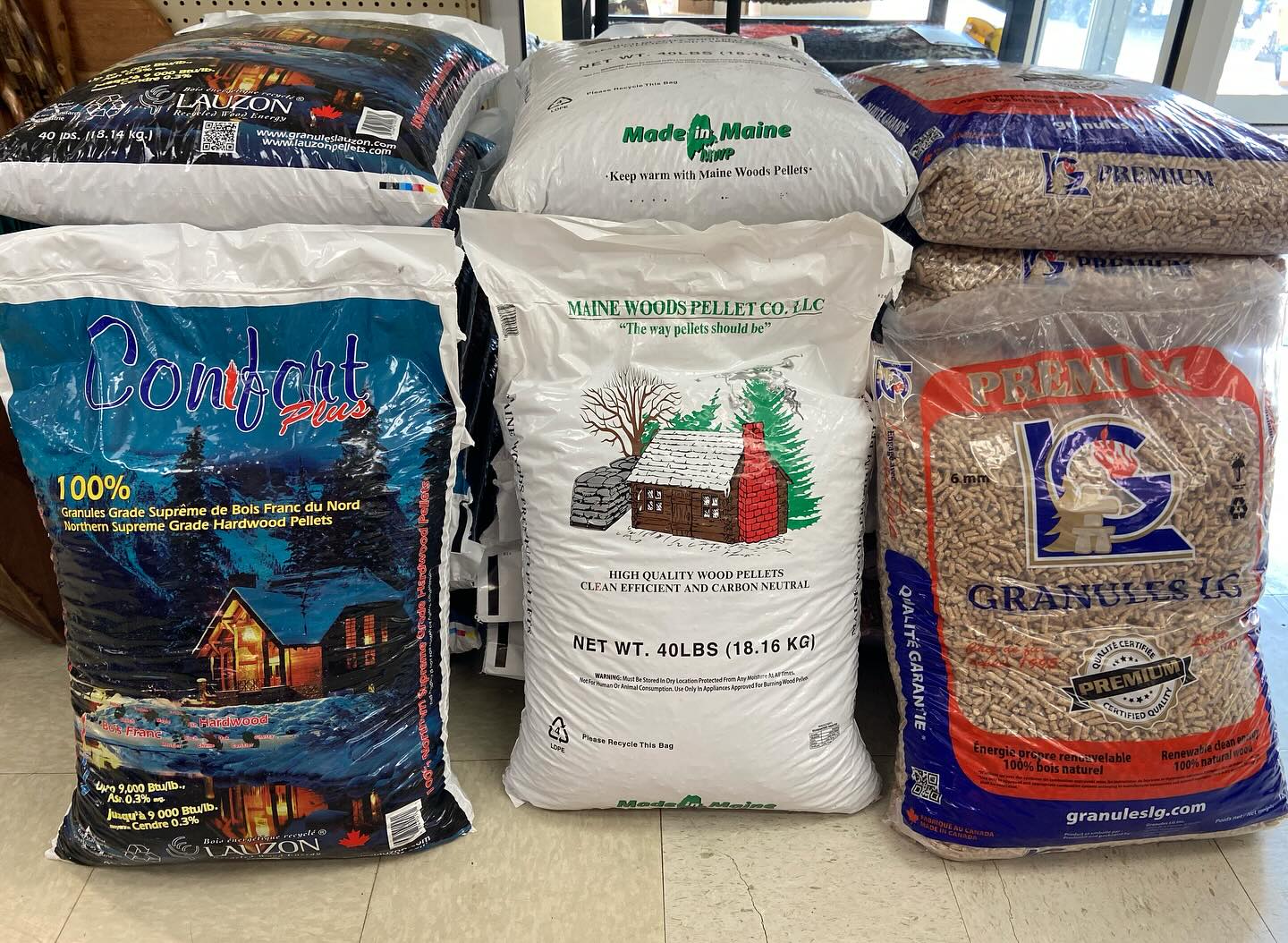Which Wood Stove Pellets are Right for You?
Understand your options for wood stove pellets sold at the Co-Op, to stay warm and cozy all winter.
Heating Your Home With Wood Pellets
With the cost of heating oil and electricity increasing year by year, many have invested in a pellet stove for whole or supplemental heat in their homes. Whether it's your first winter using a new pellet stove, or you’re looking to maximize your stove’s efficiency, the types of wood pellets you use should always be considered.
Many people understand that when it comes to a traditional wood stove, hardwood logs are preferable to softwood because of their higher density and longer burn time. This wisdom, however, does not apply to wood pellets as they are pressure treated to a uniform density, meaning they also have a higher energy content by weight than regular logs.
So, once that density factor is removed, what is the difference between softwood and hardwood pellets? What are the reasons to choose one over the other? To make the best decision, let’s look at the type of information wood pellet manufacturers share with their customers.
When you look at a bag of pellets, you’ll find the BTU, Ash Content, and Moisture content. All of these qualities affect the way the product will burn, and you should consider what’s best for your stove setup and home based on these factors.
Wood Type (Hardwood or Softwood)
Typically, the wood materials used for pellets are sourced from tree farms as a byproduct from logging. It doesn’t have any additives or glue to hold them together, rather the natural lignin in the wood is what binds it after it's been pressurized into pellet form.
Wood stove pellets are rarely made from single sources, though many pellet companies source from local sawmills and logging facilities. The three types of wood pellets available at the Co-Op are Maine Woods Pellets, ComfortPlus Pellets, and LG Granules Pellets.
Because of the nature of production, looking at whether a bag is made of primarily hardwood or softwood material isn’t going to tell you everything you need to know at face value. You must also consider the other qualities measured on the package to make an informed decision.

BTU
This is a type of measurement of heat output and stands for British Thermal Units. Without getting too scientific, the higher BTU your pellets have, the hotter they burn. Typically, pellets with a higher BTU are more combustible and get used up faster than pellets with a lower BTU. As a general rule, softwood pellets tend to have a higher BTU. But if you’re trying to heat up a large, well insulated room, a higher BTU might be what you’re looking for, since you’ll be retaining a large amount of heat in a larger space.
Ash Content
Cleaning your pellet stove regularly is essential to its proper operation. The material produced by burning pellets, if left, will affect the stove’s heating abilities and create air pollution. Ash Content, as it is labeled on the bags, is the amount of ash by weight left behind after the pellets are burned. Ideally the amount of ash should be less than 1% of the weight of the pellets. If you burn pellets with a low ash content, you won’t have to clean out your stove nearly as much (though you should be cleaning your stove regularly to ensure proper function).
Moisture Content
The more moisture in your wood pellets, the more energy is wasted during combustion because the energy is being used to evaporate excess water instead of being converted to heat. When buying wood pellets, look for kinds with a low moisture content, less than 10%. Sometimes softwood pellets have higher moisture content because of the higher amounts of sap present in hardwood tree species, but most premium wood pellets try to correct for this and have pretty similar moisture contents anyway. Wood pellets as a whole have a much lower moisture content than whole firewood logs, but it’s still a consideration for pellet stove owners who’d like to maximize heat output.
 Price
Price
At the Co-Op, we do our best to get premium quality wood pellets at consistent prices, and our everyday low price for each of our wood pellet brands are the same across the board by bag or ton. This allows you to make a decision based on the material differences in these products and preserve the fuel efficiency, longevity, and affordability of your pellet stove for the long term.
